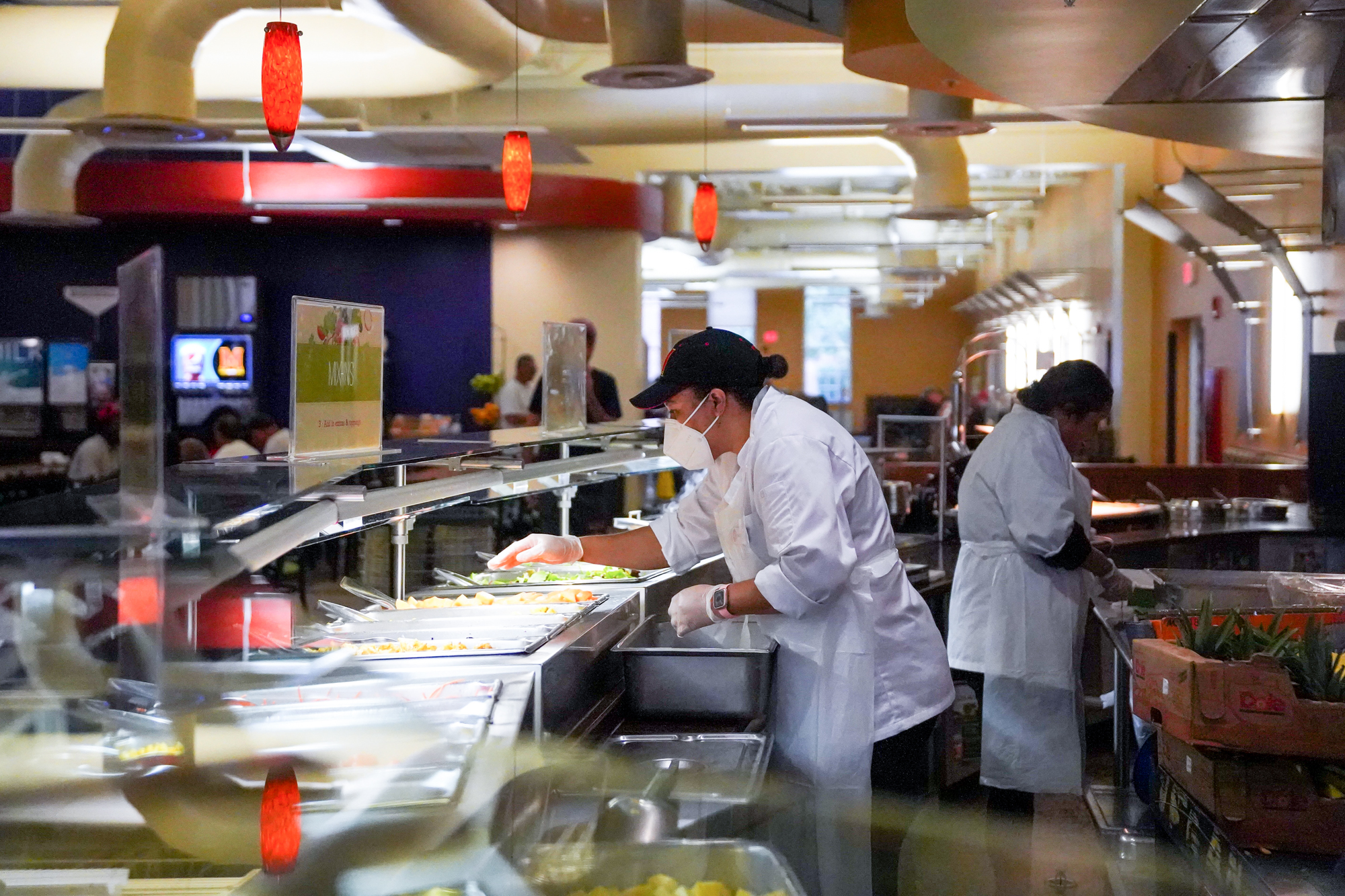Students and members of the University of Maryland Dining Services addressed halal options in this university’s dining halls at a joint town hall hosted by the Residence Hall Association and the Muslim Student Association Monday.
Dining Services serves “halal-friendly” food, which is defined as meats that are certified halal during harvesting. Pork or other animals not allowed under Islamic law, alcoholic beverages or intoxicating plants all come under foods not included as part of this classification, according to Dining Services.
Dining Services reviewed a proposal by the Halal Food Standards Alliance of America, a nonprofit organization which can certify that food provided by the dining halls meets the standard of halal.
“The proposal that HFSAA provided in terms of an end-to-end solution of just certifying every step of the process from the slaughterhouse all the way to your plate, is something that is just so alluring to me,” junior mathematics major and MSA President Safiullah Rifai said. “It’s like we belong on campus.”
From this proposal, Dining Services is creating a concept plan that will streamline halal into one serving platform at 251 North. The serving area would be open to anyone and separated from any non-halal items.
[UMD residential facilities department plans to renovate Ellicott Community]
There are two main concerns regarding the HFSAA halal proposal, according to Dining Services interim director Joe Mullineaux. There’s a limited quantity of hand-slaughtered meat to supply the serving platform, and the cost of hand-slaughtered meat is significantly higher than non-HFSAA halal meats.
“I really want to make sure students understand that there is not a solution at this moment,” Colleen Wright-Riva, interim assistant vice president for living and learning, said. “This is a significant hurdle that’s going to take a lot of creativity and problem solving.”
The proposal is currently being reviewed by the campus legal office and needs approval from other departments in this university, according to Mullineaux.
At the town hall, students voiced concern about cross-contamination, including chefs mixing leftovers of non-halal food with halal-friendly food and plates still containing traces of non-halal food from students who used them beforehand.
Halal-friendly food may be prepared in an area used for non-halal foods and equipment may be used to prepare both types of food in the dining halls, according to Dining Services. They added that food contact areas are sanitized between preparation of different food products.
[UMD SGA to purchase sexual assault prevention items]
The dishwashers at the dining hall essentially wash the dishes four times and kill all bacteria, according to Mullineaux. Students should report to the manager if they find cutlery with leftover food on it, Wright-Riva said.
Some students shared concerns about certain halal-friendly foods disappearing from the dining halls, specifically from Yahentamitsi Dining Hall.
Chefs may change their menus based on the popularity of certain food, potentially leading to some foods unavailable for a while, Wright-Riva said. It could potentially also be a supply-chain issue, she said.
“We’ll check on it because that’s not our intention and we shouldn’t lose the halal friendly opportunity,” Wright-Riva said. “Even if it’s not as popular as something else, we still need to have it.”



